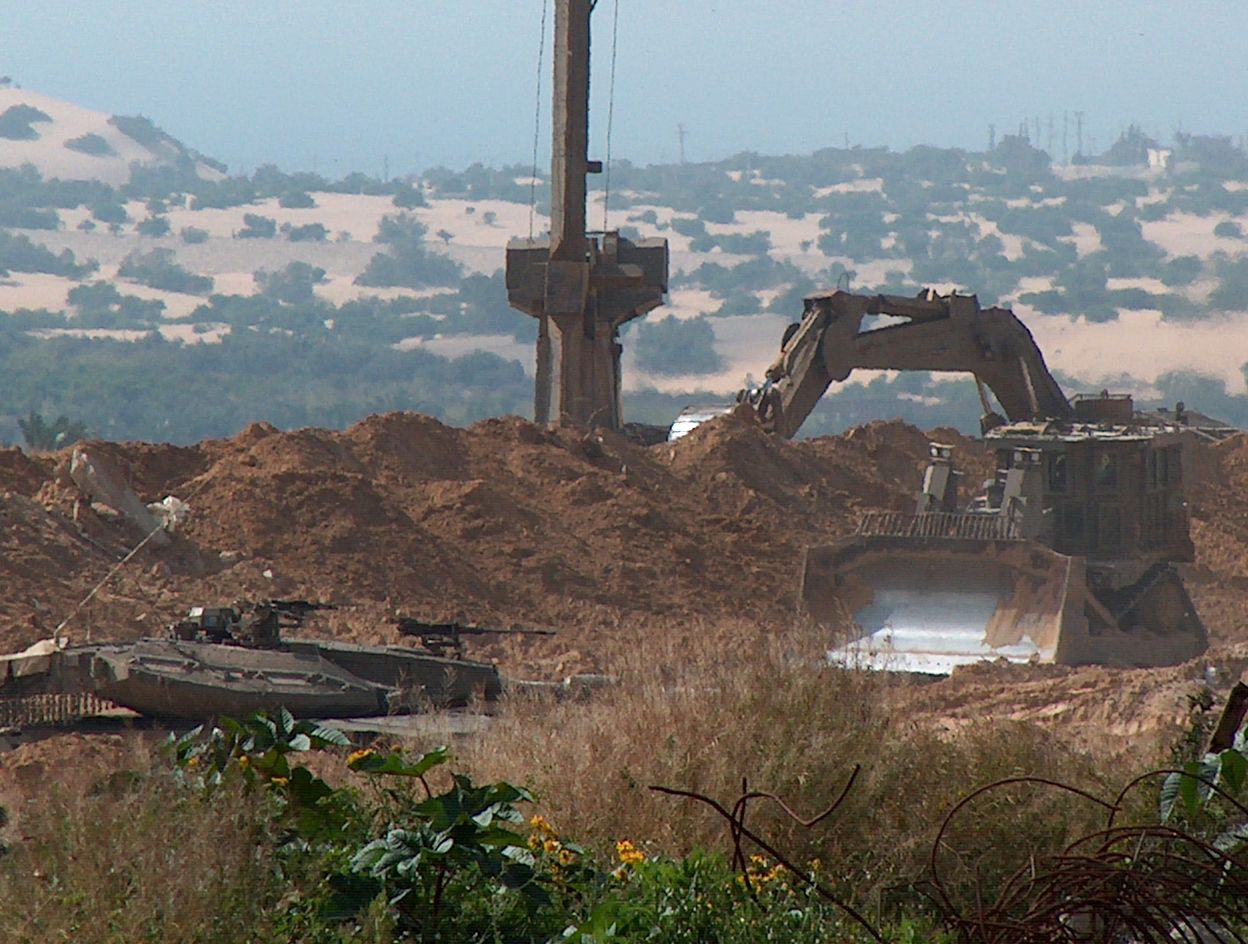- Violation: pumping colonies’ sewage water into inhabited Palestinian areas
- Location: Kfar Qaddum village- Qalqiliya
- Date: October 30, 2015
- Perpetrators: Israeli occupation forces
- Victims: residents of the village
Details:
Spraying putrid-smelling water at Palestinian protesters has been one of the occupation’s methods to control weekly marches and rallies carried out in the areas of the West Bank; especially the weekly-organized rally of Kfar Qaddum village.
It should be marked that the residents of Kfar Qaddum demand to re-open the village’s main road that is located nearby Yizhar colony, taking into account their dire need of the road that facilitate every-day movement and travels.
Known as "Skunk," the Israeli military has been using the putrid-smelling water since at least 2008 as a form of non-lethal crowd control. Palestinians, however, simply call the liquid "shit," after the smell that can stay for weeks on clothes, body, walls, and furniture.
Kfar Qaddum is ranked number one in terms of the barbaric measures inflected on its civilians by the occupation. More than nine houses are continuously attacked by the chemical.
It is reported that the Israeli occupation forces on October 30, 2015 sprayed putrid-smelling water at villagers from Kfar Qaddum at time of protesting to open the village’s main road. Citizen Adnan Qaddumi (65) got his house pumped the chemical into as a result. The seven residents including three kids of the house are now threatened of poisoning due to the chemical.
Photo 1: Adnan’s house polluted by the chemical
Photo 2: a villager’s house polluted by the chemical
Photo 3: the nearby Kedumim colony
Photo 4: the closed entrance of Kfar Qaddum
Houses; particularly those located in the nearby of Kedumim colony get vehemently attacked by all means especially by putrid-smelling water.
It should be marked that the residents of Kfar Qaddum organize weekly rallies; they march every Friday towards the closed southern entrance of the village since 2002 in attempt to get it opened by the occupation, which insists on keeping the entrance closed to serve the expansion of Kedumim colony of the nearby (6500 dunums).
Cars movement was first banned but pedestrians were allowed through the road. At the end, the road was totally shut down, violating all international laws and conventions that ban any change on archeological sites existing before the occupation.
Prepared by
The Land Research Center
LRC

















